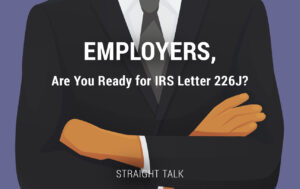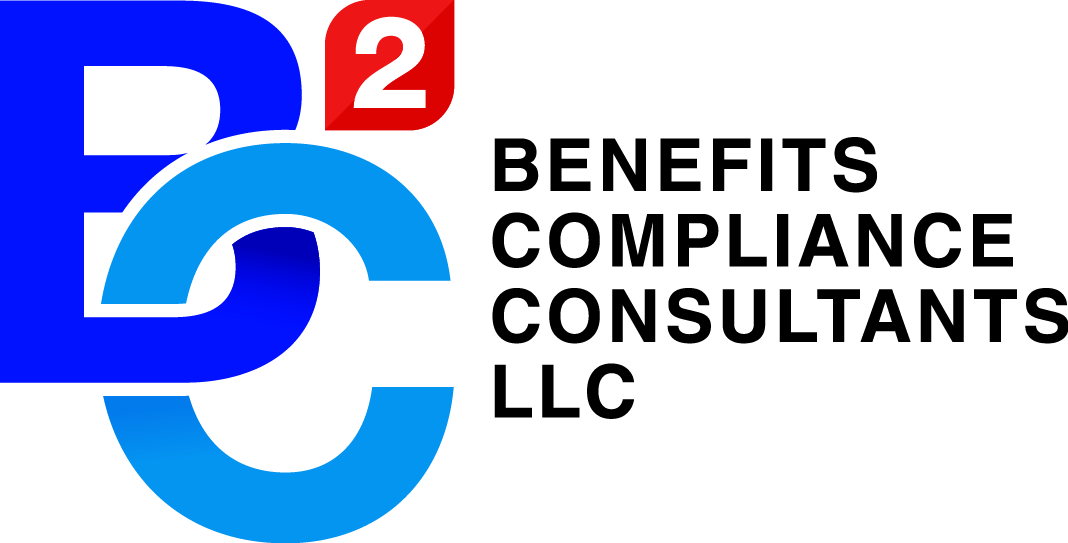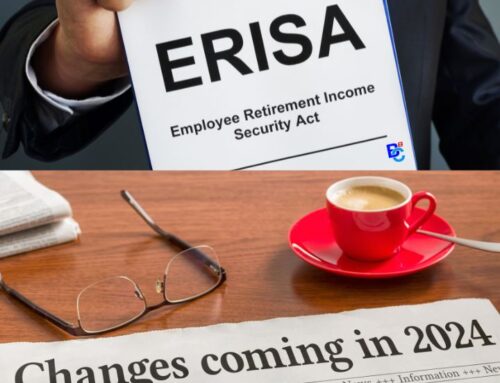What is the Letter 226-J Benefits Compliance Notification and What Does it Mean for An Employer?
 Letter 226-J benefits compliance can be an intimidating topic. The letter 226-J is a latter that is sent to applicable large employers (referred to as ALEs) to inform them that they might be liable for something called an ESRP. This stands for employer shared responsibility payment.
Letter 226-J benefits compliance can be an intimidating topic. The letter 226-J is a latter that is sent to applicable large employers (referred to as ALEs) to inform them that they might be liable for something called an ESRP. This stands for employer shared responsibility payment.
To figure out whether an ALE might be liable for such a payment and how much they need to pay the government looks at the information that was provided by the employer in the 1094-C and 1095-C forms, as well as information that individual employees have provided in their own tax returns.
You will need to read the letter, and any attachments, carefully, to understand the process and the payment that the government thinks you are responsible for. The letter will also explain what you need to do next, and how to appeal if you think that the ESRP amount is incorrect.
Along with the letter, you will have been sent a form Form 14764 which you will need to fill out. That form will ask you whether you agree or disagree with the letter. If you disagree, then you will need to provide a full explanation of why you disagree, and indicate any changes that you want to see made. There is another form, called Form 14765, which will allow you to do that. Make sure that you get your response sent off by the deadline.
If you agree with the liability, then follow the instructions provided, and sign the response form, then return it along with payment in full. There is an envelope provided for this.
If you are concerned that the amount is incorrect, then you should check not only the letter, but also the information that was reported on 1094-C and 1095-C. If that information is inaccurate, then the IRS will not be able to calculate the ESRP payments correctly. Make sure that you keep hold of a copy of the letter, as well as any documents that you submitted, because they will all be needed if there is any need for an appeal.
If, for some reason, you are unable to do this task yourself, you can use Form 2848 to notify the IRS of Power of Attorney and to file a Declaration of Representative. This will allow another nominated person to deal with this on your behalf. The Form 2848 should specifically state the year that the declaration is for, and also note that it relates to the Shared Responsibility Payment.
Note that the ESRP itself is not a bill. Rather, it is a notification that you may be liable, and a proposal for a bill. You will need to review the letter, and the attachments, and complete the form by the date that is stated on the letter. After you respond, the IRS will review your response, reply by sending you an acknowledgement letter and notify you of their final decision.
If you still disagree with the decision, then you will have the right to appeal, and this will be laid out in the acknowledgement letter.
Do not delay when replying to the letter. It is important that you communicate promptly so that you can get all of the information to the IRS before it becomes a pressing matter. If you are late to answer them, then you may find yourself being penalized, and you will find that the appeals process should you disagree with the payment will be more onerous.
If you and your employees have provided accurate records throughout the year, then the letter should be correct and it will only be a matter of answering it and providing the payment that is requested. If you have budgeted correctly throughout the year then you will find that the payment should be around what you expected, and not an issue. If you are going to struggle to pay the amount due, then call the IRS as soon as possible to discuss your options, because failure to deal with these issues can leave you and your business in a crippling situation that is most likely bad for business.




